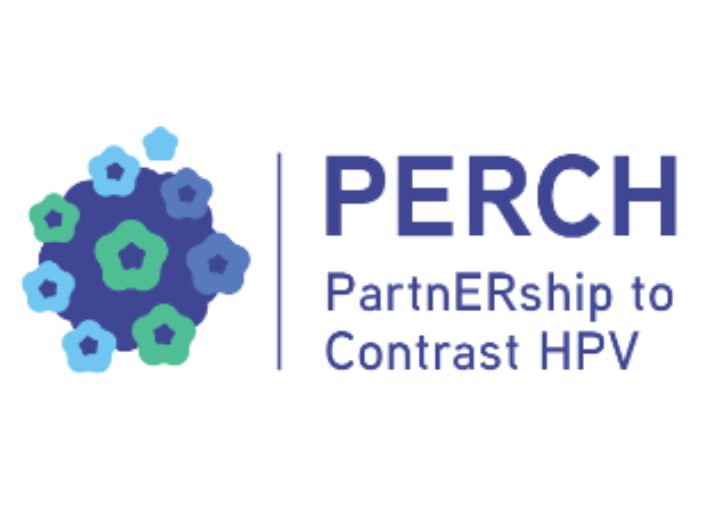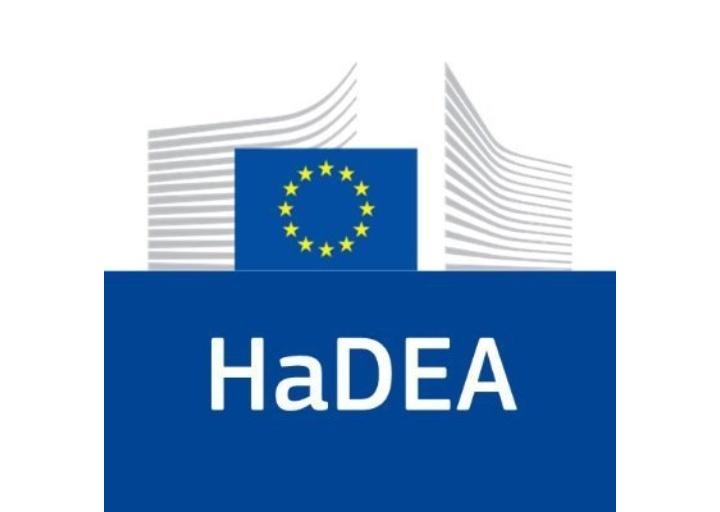PERCH - Partenariato per contrastare HPV (Progetto Nr. 101075314)
Ricercatore principale: Silvia Franceschi.
Il papillomavirus umano (HPV) è un virus a DNA composto da più di 100 sottotipi, di cui più di 40 sono trasmessi sessualmente e possono infettare la mucosa anogenitale e orofaringea. Almeno 14 tipi di HPV classificati come "ad alto rischio" possono causare il cancro cervicale nelle donne e una frazione di altri tumori anogenitali e tumori della testa e del collo in entrambi i sessi. Nel 2020, secondo i dati del Global Cancer Observatory (CGO), il cancro della cervice risultava essere il quarto tumore più comune nelle donne globalmente. Il cancro della cervice è una malattia altamente prevenibile attraverso la vaccinazione HPV (prevenzione primaria) e lo screening del cancro della cervice (prevenzione secondaria) ed è una malattia curabile se diagnosticata tempestivamente e adeguatamente trattata. Tuttavia, rappresenta ancora un importante problema di salute pubblica in Europa e nel mondo, soprattutto nei paesi poveri, compresi i paesi dell’Europa orientale, dove l’accesso ai servizi sanitari pubblici è limitato e lo screening e il trattamento della malattia non sono stati ampiamente implementati. Per raggiungere l’obiettivo del 90% di copertura vaccinale HPV stabilito dall’OMS, molti paesi necessitano di azioni per migliorare le loro specifiche coperture vaccinali. L’obiettivo generale di PERCH (PartnERship to Contrast HPV) è contribuire all’attuazione del Piano europeo di lotta contro il cancro, che mira a sostenere gli sforzi degli Stati membri per estendere l’introduzione della vaccinazione di routine contro l’HPV per eliminare entro il prossimo decennio il cancro della cervice e altri tumori causati da HPV.
Human papillomavirus (HPV) is a DNA virus that consists of more than 100 subtypes, of which more than 40 are sexually transmitted and can infect anogenital and oropharyngeal mucosa. At least 14 HPV types classified as ‘high risk’ can cause cervical cancer in women, and a fraction of other anogenital cancers and head and neck cancers in both genders. In 2020, according to data from the Global Cancer Observatory (CGO), cervical cancer was the 4th most common cancer among women worldwide. Cervical cancer is a highly preventable disease through HPV vaccination (primary prevention) and cervical cancer screening (secondary prevention), and is a treatable disease if detected promptly and properly treated. However, it still represents an important public health problem in Europe and worldwide, especially in poor countries, including several Eastern Europe countries, where access to public health services is limited and screening and treatment for the disease have not been widely implemented. In order to achieve the 90% HPV vaccination coverage goal set up by the WHO, many countries require actions to improve their specific vaccination coverages. The General Objective of PERCH (PartnERship to Contrast HPV) is to contribute to the implementation of Europe’s Beating Cancer Plan, which aims to support Member States’ efforts to extend the roll-out of routine HPV vaccination to eliminate cervical cancer and other cancers caused by HPV in the coming decade.
Ente finanziatore
European Health and Digital Executive Agency (HADEA) under the powers delegated by the European Commission - EU4Health programmeFonte di finanziamento
EuropeaCodice Unico di Progetto (CUP)
J33C22004430006Data inizio
1 novembre 2022Data di termine
30 aprile 2025Ruolo dell'Istituto
Ente affiliatoStruttura
Epidemiologia oncologicaPatologie
Partner
Coordinatore
- Istituto Superiore di Sanità (ISS)
Partner
- Sciensano, Belgian Cancer Center (SCI)
- Croatina Institute of Public Health (CIPH)
- Institute of Health Information and Statistics of the Czech Republic (UZIS)
- National Institute for Health Development (NIHD)
- French National Cancer Institute (INCa)
- Federal Centre for Health Education (BZgA)
- 1st Regional Health Authority of Attica (1st YPE)
- National Public Health Center, Hungary (NPHC)
- National Public Health Center under The Ministry of Health of Republic of Lithuania (NVSC)
- Norwegian Institute of Public Health (NIPH)
- National Institute of Public Health - National Research Institute, Poland (NIPH NIH - NRI)
- National Institute of Public Health, Romania (INSP)/(NIPH)
- Ministry of Health of the Slovak Republic (SK MoH)
- Institute of Oncology Ljubljana (IOL)
- Institut Català d’Oncologia (ICO)
- Public Health Agency of Sweden (PHAS)
Enti affiliati
- Università Cattolica del Sacro Cuore (UCSC)
- Università di Padova (UNIPD)
- Local Health Authority Research Hospital Reggio Emilia (AUSL RE - IRCCS)
- Interdepartmental Center for Research Ethics and Integrity of National Research Council (CNR - CID Ethics)
- Oncologic network, prevention and research Institute (ISPRO)
- University of Florence (UNIFI)
- Ministry of Health, Italy (IT-MoH)
- Terviseament/Health Board, Estonia (HB)
- Ècole des hautes etudes en santé publique (EHESP)
- Robert Koc Institute (RKI)
- National Institute of Public Health, Slovenia (NIJZ)
- Fundacio Institut d’Investigacio Biomedica de Bellvitge (IDIBELL)
- Karolinska Institute (KI)
Partner associati
- HSE National Immunisation Office, Ireland (NIO)
- Andreas Syggros Hospital for skin and Venereal Diseases (ASH)
- Alexandra General Hospital (AH)







